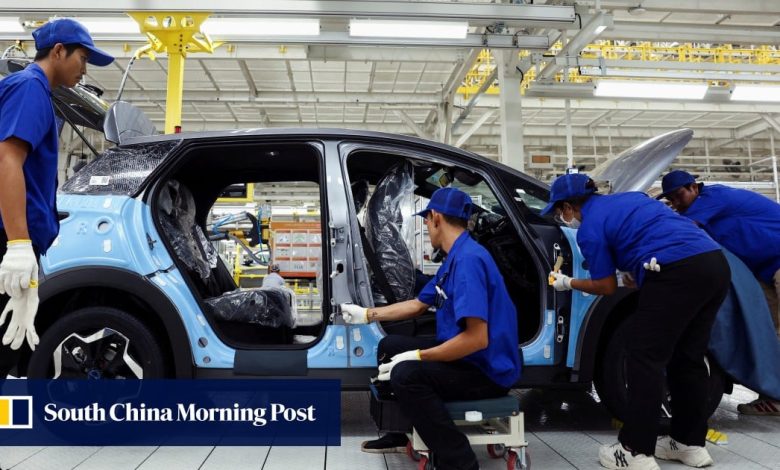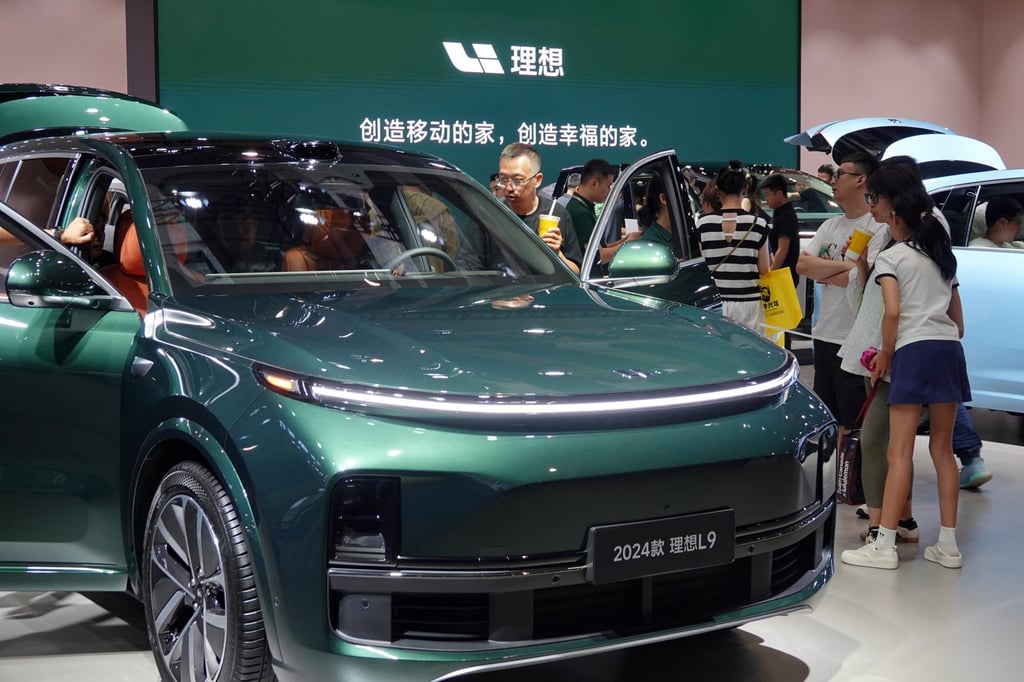Chinese EV makers BYD and Li Auto report higher earnings, narrower margins

“Top players have shown their resilience after getting off to a slow start this year,” said Ding Haifeng, a consultant at Integrity, a Shanghai-based financial advisory firm.
BYD’s second-quarter performance was its second-best, behind a 10.4 billion yuan profit in the third quarter of 2023. In the January-to-March period, BYD reported a 47.3 per cent quarter-on-quarter decline in profit to 4.6 billion yuan.
BYD did not provide second-quarter 2024 numbers directly; the figures above were derived by comparing its first-half figures and its first-quarter results, published in April in Hong Kong stock exchange filings.
In the second quarter, the EV penetration rate on the mainland surged to 45 per cent, from 31 per cent between January and March. The rate has since surpassed 50 per cent in July as major EV assemblers slashed prices.
China is the world’s largest EV market, with sales of battery-powered cars accounting for about 65 per cent of the global total.
But its gross margin narrowed 3.2 percentage points to 18.7 per cent because of the price cuts.

The company’s gross margin, however, narrowed by 1.1 percentage points to 19.5 per cent due to the incentives it offered to customers.
Li Auto predicted in its second-quarter earnings statement that deliveries from July to September would reach 145,000 to 155,000 units, up between 33.5 and 42.8 per cent quarter on quarter.
In April, Goldman Sachs estimated that the profitability of the entire Chinese EV industry could turn negative this year if BYD were to slice another 7 per cent, or 10,300 yuan off the price of its cars.


 Huge Games Selection
Huge Games Selection